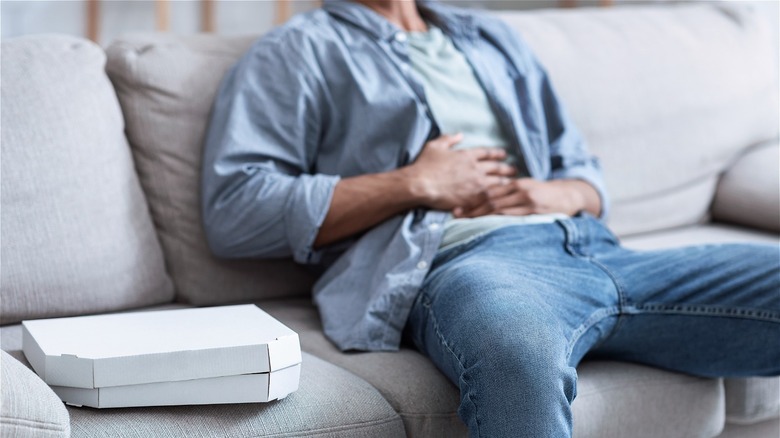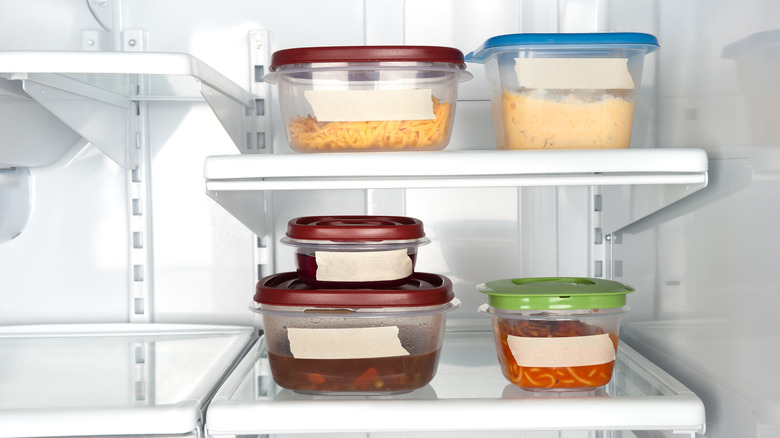How Food Poisoning From Leftovers Led To An Amputation
The CDC states that any contaminated food can make you sick. However, some products, such as raw meat and vegetables, are more strongly linked to harmful bacteria. However, certain grains, like rice, can make someone seriously ill. In fact, properly storing leftover rice can literally mean the difference between life and death, as shown in the case of a 19-year-old Massachusetts college student.
According to USA Today, the teenager fell seriously ill after eating some leftover rice, chicken, and lo mein that came from a restaurant. As the outlet explains, rice and pasta contain a bacterium called Bacillus cereus. If left out for an extended period of time after being heated, Bacillus cereus creates a dangerous toxin that could kill a person within hours of exposure. Before this meal, the teenager reportedly appeared to be generally healthy. But hours after consuming it, they were gripped by abdominal pain, and their skin took on a purplish hue. After the student arrived at the hospital, things took an even worse turn.
Food poisoning severely affected a healthy teen
"Food poisoning will often resolve on its own," according to K Health. But the 19-year-old college student experienced something much more severe than the typical case. Citing the New England Journal of Medicine, USA Today said medical tests indicated that the teen had contracted meningococcal purpura fulminan disease after entering septic shock. Their condition was so bad, their legs and fingers had to be amputated.
The disease appeared to be the catalyst for necrosis, which is the death of tissues and cells. The student sustained a rash, experienced organ failure, needed a pacemaker for nearly two weeks to address "cardiac dysfunction."
This tragic example shows that eating improperly stored rice can be extremely dangerous. (Similarly, eating improperly stored pasta leftovers can be deadly.) The United Kingdom's National Health Service advises people to keep their rice in the fridge for no more than one day until reheating, or else there is a risk of food poisoning. The NHS also advises against heating rice more than once.

